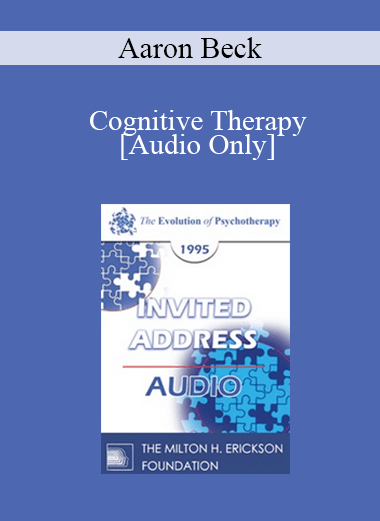- Topic Areas:
- Invited Address
- Category:
- Evolution of Psychotherapy | Evolution of Psychotherapy 1995
- Faculty:
- Aaron Beck, MD | Salvador Minuchin, MD
- Duration:
- 1 Hour 31 Minutes
- Format:
- Audio Only
- Original Program Date :
- Dec 14, 1995
Description
Description:
Cognitive therapy was originally developed for the treatment of Depression and Anxiety. Since its early beginnings various clinicians and investigators have extended its use to a wide variety of disorders and populations. Systematic outcome studies have demonstrated its efficacy not only in the garden variety of disorders such as Depression, Anxiety and Panic but also in medical disorders such a low back pain, diabetes, chronic fatigue syndrome and chronic hypertension. Cognitive therapy appears to satisfy the important criteria for a system of psychotherapy, namely, a testable theory of personality and psychopathology with empirical findings to support it and a set of strategies guided by these theories and applied to clinical conditions. Each clinical condition has its own particular cognitive configuration and thus the strategies and tactics vary from one disorder to another and also from one type of population to another. The underlying theme however is that psychiatric disorders are characterized by deficits or distortions in the fundamental beliefs that guide people’s behavior and influence their emotions. Cognitive therapy for the use of a variety of strategies tends to reduce the cognitive distortions and to provide a variety of cognitive skills to compensate for the deficits.
Educational Objectives:
- To list two outcome studies that support the efficacy of cognitive therapy.
- To list two empirical studies that support the theory behind cognitive therapy.
- To list seven conditions for which cognitive therapy has shown to be an effective form of treatment.
*Sessions may be edited for content and to preserve confidentiality*







